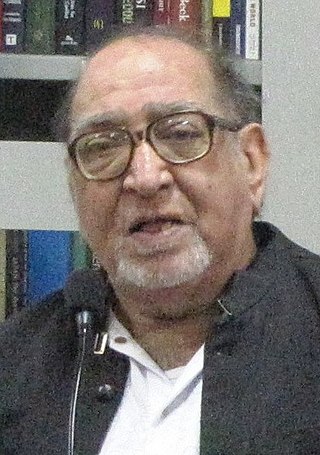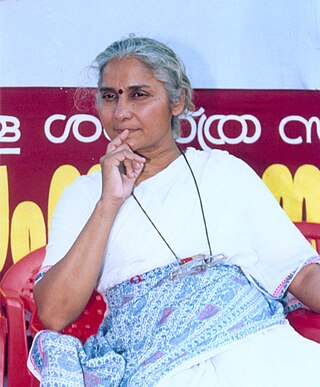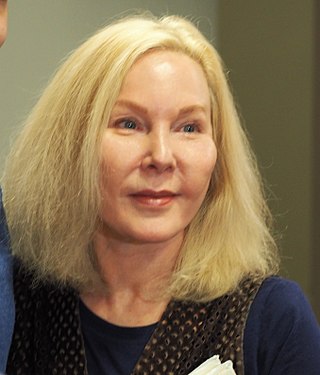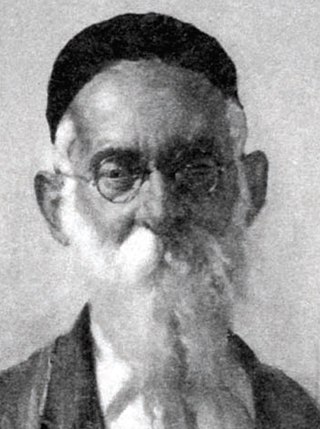Related Research Articles

Teesta Setalvad is an Indian civil rights activist and journalist. She is the secretary of Citizens for Justice and Peace (CJP), an organisation formed to advocate for the victims of 2002 Gujarat riots.

Asghar Ali Engineer was an Indian reformist writer and social activist. Internationally known for his work on liberation theology in Islam, he led the Progressive Dawoodi Bohra movement. The focus of his work was on communalism and communal and ethnic violence in India and South Asia. He was a votary of peace and non-violence and lectured all over world on communal harmony.

Sooni Taraporevala is an Indian screenwriter, photographer and filmmaker who is the screenwriter of Mississippi Masala, The Namesake and Oscar-nominated Salaam Bombay! (1988), all directed by Mira Nair. She also adapted Rohinton Mistry's novel Such A Long Journey(2000) wrote the films Dr. Babasaheb Ambedkar her directorial debut Little Zizou as well as her latest film Yeh Ballet (2020) A Netflix Original that she wrote and directed.

Dina Wadia was the daughter of Muhammad Ali Jinnah, the founding father of Pakistan and Rattanbai Petit. She belonged to the prominent Jinnah family through her father, the Petit family through her mother, and to the Wadia family through her marriage to Neville Wadia.

Nandita Das is an Indian actress and film maker. She has acted in over 40 feature films in ten different languages. Das appeared in the films Fire (1996), Earth (1998), Bawandar (2000), Kannathil Muthamittal (2002), Azhagi (2002),Kamli (2006), and Before The Rains (2007). Her directorial debut Firaaq (2008), premiered at the Toronto Film Festival and travelled to more than 50 festivals, winning more than 20 awards. Her second film as a director was Manto (2018). Based on the life of 20th Century Indo-Pakistani short story writer Sadat Hasan Manto, the film was screened at Cannes Film Festival in the "Un Certain Regard" section. In September 2019, Das produced a two-minute Public Service Announcement music video India's Got Colour. The music video is about the issue of colourism and urges the audience to celebrate India's diversity of skin colour. Her first book, 'Manto & I', chronicles her 6-year long journey of making the film. She wrote, directed, produced and acted in a short film called, Listen to Her, that sheds light on the increase in domestic violence and overburden of work that women have been facing during the lockdown. Also sought petition seeking the commutation of the death sentence handed out to Ajmal Kasab.

Medha Patkar née Khanolkar is a politician and activist working on certain political and social issues raised by tribals, dalits, farmers, labourers and women facing injustice in India. On 16 November 2022, she participated in the Bharat Jodo Yatra led by Congress party leader Rahul Gandhi in Washim, Maharashtra. She is an alumnus of TISS, a premier institute of social science research in India.
Scarred: Experiments with Violence in Gujarat is an Indian, non-fiction book that covers the violence in the Indian province of Gujarat, that was targeted largely at the region's Muslim community. It is authored by award-winning Mumbai-based journalist Dionne Bunsha, and published by Penguin in 2006.

Communalism Combat is a monthly magazine published by Sabrang Communications since August 1993. The magazine is edited by husband wife team of Javed Anand and Teesta Setalvad.

Anu Aga is an Indian billionaire businesswoman and social worker who led Thermax, an energy and environment engineering business, as its chairperson from 1996 to 2004. She was among the eight richest Indian women, and in 2007 was part of 40 richest Indians by net worth according to Forbes magazine. She was awarded with the Mumbai Women of the Decade Achievers Award by ALL Ladies League, the all ladies wing of ASSOCHAM.

Rahul Dholakia is an Indian film director-producer-screenwriter, most known for his National Film Award-winning film, Parzania (2005), prior to which he also made documentaries like Teenage Parents and New York Taxi Drivers.

Katherine "Kate" J. Boo is an American investigative journalist who has documented the lives of people in poverty. She has won the MacArthur "genius" award (2002) and the National Book Award for Nonfiction (2012), and her work earned the 2000 Pulitzer Prize for Public Service for The Washington Post. She has been a staff writer for The New Yorker magazine since 2003. Her book Behind the Beautiful Forevers: Life, Death and Hope in a Mumbai Undercity won nonfiction prizes from PEN, the Los Angeles Times Book Awards, the New York Public Library, and the American Academy of Arts and Letters, in addition to the National Book Award for Nonfiction.
Nilofar Suhrawardy is an Indian freelance journalist and author. Before taking to freelance journalism, she worked as an Assistant Editor for various leading Indian dailies, including The Times of India, The Pioneer and The Statesman. She spent several years in the United States and specialised in communication studies and nuclear diplomacy.

Sunitha Krishnan is an Indian social activist and chief functionary and co-founder of Prajwala, a non-governmental organization that rescues, rehabilitates and reintegrates sex-trafficked victims into society. She was awarded India's fourth highest civilian award the Padma Shri in 2016.
Javed Anand is an Indian journalist and civil rights activist who founded the Mumbai-based Sabrang Communications in 1993. He is married to Teesta Setalvad and they co-edit the monthly Communalism Combat.

Mithan Jamshed Lam (1898–1981) was an Indian lawyer, social activist and the Sheriff of Mumbai. She was the first Indian woman barrister and the first Indian woman lawyer at the Bombay High Court. She was a member of the All India Women's Conference and served as its president in 1961–62. The Government of India awarded her the third highest civilian honour of the Padma Bhushan, in 1962, for her contributions to society.

Rashmi Bansal is an Indian non-fiction writer and entrepreneur. As of 2019, she is the author of nine books on entrepreneurship. Her first book, Stay Hungry Stay Foolish, traced the progress of 25 MBA entrepreneurs and sold over 500,000 copies.
There was communal violence between Parsis and Bohra Muslims in May 1857 in Broach in India.

Pestonji Bomanji also known as Pestonjee Bomanjee (1851–1938) was a painter trained in the academic realist style of the Bombay School of Art.
Perin Bharucha Chandra was an Indian author, communist, freedom fighter and peace activist. She played an integral role in promoting peace and peaceful conflict resolution throughout the Cold War era. She was born in Chaman, Balochistan to a Parsi family. Her father was Lt. Colonel Phiroze Byramji Bharucha, a British Indian Army Doctor and later Surgeon General of Lahore. A believer in Scientific Socialism, she married Romesh Chandra, a former chairman of the World Peace Council. Her son, Pheroze, is a journalist and her daughter-in-law, Chandita Mukherjee is a documentary filmmaker and activist.
Kalpana Sharma is an Indian journalist, editor, and writer. Currently freelance, she has worked with several Indian dailies, including The Indian Express, The Times of India, and The Hindu, where she was a deputy editor and chief of the Mumbai bureau. In 1987, she received the Chameli Devi Jain Award for Outstanding Women Mediapersons. She has written and edited several books of reportage from India, including Rediscovering Dharavi (2000), which consists of reporting about Dharavi, a large slum in the city of Mumbai, India, and The silence and the storm: narratives of violence against women in India.
References
- 1 2 3 4 "Meher Pestonji – Biographical Sketch" . Retrieved 15 November 2016.
- 1 2 3 4 "Pervez – Meher Pestonji". Archived from the original on 15 November 2016. Retrieved 15 November 2016.
- 1 2 "BookChums profile". Archived from the original on 19 February 2016. Retrieved 15 November 2016.
- ↑ "Times of India". The Times of India . 20 February 2010. Retrieved 15 November 2016.
- 1 2 "Mixed Marriage – India Today" . Retrieved 15 November 2016.
- ↑ Pestonji, Meher (2007). "Troubled Times Test the Writer". Journal of Postcolonial Writing. 43 (2): 143–148. doi:10.1080/17449850701430465. S2CID 161790524.
- ↑ "Reply to "An Accidental Parsi" in the Times of India".
- ↑ "Mixed Bag". The Hindu . 2 January 2000. Retrieved 15 November 2016.[ dead link ]